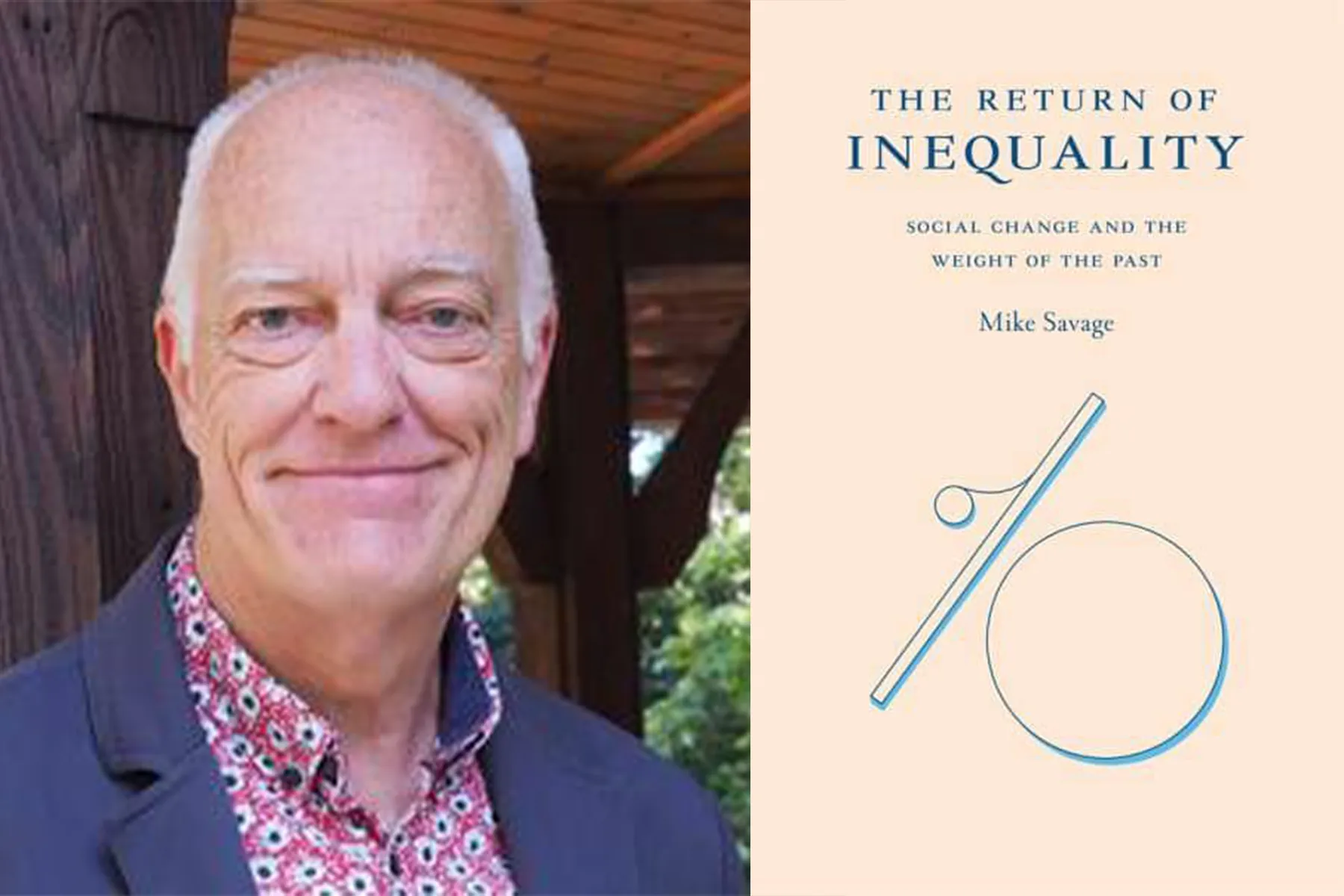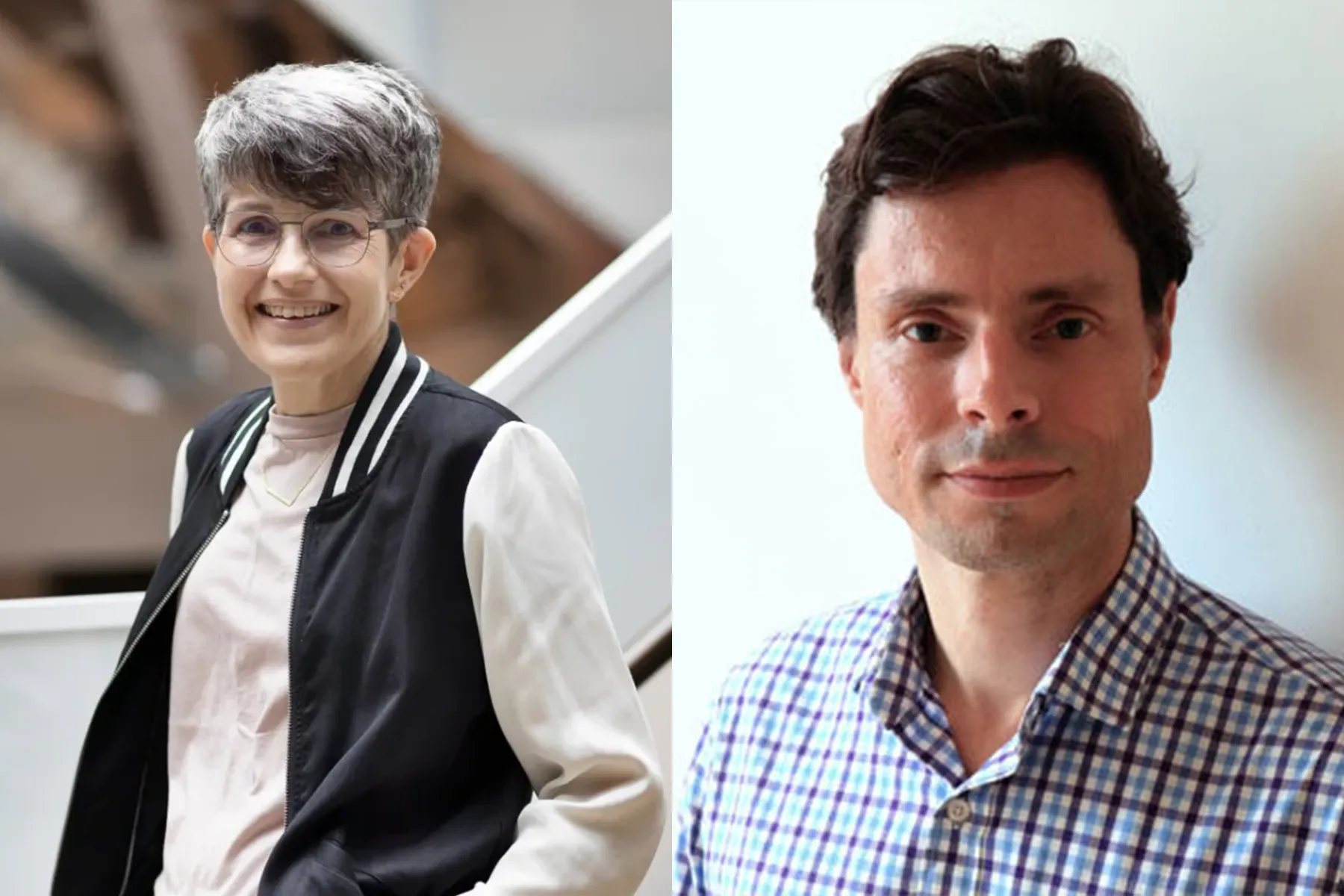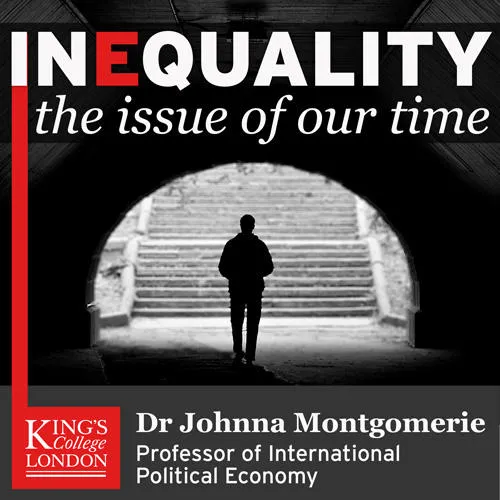Inequality – The Issue of Our Time
During the first year of the Covid-19 pandemic, the Politics of Inequality Working Group organised a digital symposium supported by the King’s Together Fund because travel restrictions prevented the planned in-person symposium. A symposium format intended to break through the silos of isolation and the barriers between academic disciplines by bringing into dialogue those at the very cutting edge of research on inequality. These dialogues are distilled into a podcast of three episodes, creating an innovative space for presenting ideas, research and solutions to the issue of our time -- inequality.
The purpose is to advance our collective thinking about what creates inequality and to consider how inequity touches our lives in really meaningful ways. Many of us can recognise inequities in everyday conversation, whether about race, gender, climate, or the historical geographies of inequality caused by colonialism - our dialogue presents practical, inclusive and innovative solutions to this crucial issue. Exploring specifically the changes in the configuration of the economy itself from the past to the present-day, in which the Covid-19 shows inequality is worsening. Having established that inequality is not just a personal experience of extreme poverty or exorbitant wealth, we consider how widening inequality impacts political stability and social cohesion.
What starts in the economy as income and wealth inequality radiates outward through society and politics in ways that generate polarization. We considered the effect inequality has on the balance between the state, the market and society; in turn, what effect can social democracy have on addressing inequality. It became clear that what was needed is to stop talking about equality as a playing field. When policy makers frame society in this way, they are putting people on opposing teams to compete in a winner takes all game of life. Imagine how much wellbeing would improve if governments framed equity as a common good or a resource for society to draw on, providing widespread prosperity and cohesion rather than individual gains and division.
Where ideas lead, practical solutions follow. Undoubtedly, we must change how we think and talk about inequality, but if we do this what really changes? Can we understand inequality in all its guises, we can measure it in all kinds of different ways, we can agree, it’s an urgent economic and social policy, but nothing changes if this knowledge is not put to good use. Fatalism is not an option. We are social beings, problem solvers, capable of building a better, more equitable way of living. For practical solutions, we need look no further than the solutions discussed during the symposium to tackling inequality. Plenty of examples are given of when inequality was not a social problem, this suggests that changes in economic ideas and government policies can lead to improvement or worsening of inequality.

Contributors
Host:
Professor Johnna Montgomerie - Professor of International Political Economy, King's College London. Her research focuses on finance and inequality, especially the role of debt in determining who has access to, and ultimately benefits from, financialisation. The current unprecedented scale of private debt complicates established understandings of income and wealth inequalities, there is a fluidity, hierarchy, and precarity of the household balance sheet. She has a large portfolio of peer-review and open-access publications and her recent book, Should We Abolish Household Debt? (2018: Polity), examines the policy solutions available to tackle the negative economic, political, and social consequences of indebtedness. As Council member of the Progressive Economy Forum, my recent chapter in Allen et al., (2021: Agenda) Return of the State: restructuring Britain for the common good is now out.

Professor Mike Savage - Martin White Professor of Sociology, Department of Sociology, International Inequalities Institute, London School of Economics (LSE). Prof. Savage studies class in historical context and in contemporary society, especially associated with the burgeoning fortunes of the super-rich. He was part of the team that created the BBC’s Great British Class Survey, which has been the most popular piece of digital sociology ever (with 9 million hits on the BBC’s ‘class calculator’), with a book, Social Class in the 21st Century which argues that older models of class which focused on the divide between middle and working class have been eclipsed by an elite class pulling away at the top, and greater fragmentation in the middle levels of the social structure, has been a bestseller. At the LSE, Professor Savage was director of the International Inequalities Institute, which established a leading intellectual agenda on studying inequality across different registers. His latest book, The Return of Inequality (2021, Harvard University Press) examines how economic inequality aggravates cultural, social, and political conflilcts, challenging thecoherence of liberal democratic nation-states.

Professor Lisa Adkins - Professor of Sociology, University of Sydney. She is co-editor-in-chief of Australian Feminist Studies and has published in the fields of economic sociology, feminist theory and on the welfare state and labour markets under finance capitalism and in post-industrial societies. Her most recent book ‘The Asset Economy: Property Ownership and the New Logic of Inequality’, co-authored by Martjin Konings and Melissa Cooper, argues that the rise of the asset economy has produced a new logic of inequality. Her other books include 'The Time of Money’ (2018) and ‘Revisions: Gender and Sexuality in Late Modernity.’ (2002).
Professor Martijn Konings - Professor of Political Economy and Social Theory, University of Sydney. Martijn's research interests are at the intersection of political economy and social theory, with a focus on money and finance, especially in the US context. His most recent book, ‘The Asset Economy: Property Ownership and the New Logic of Inequality’, co-authored by Lisa Adkins and Melissa Cooper, argues that the rise of the asset economy has produced a new logic of inequality. As the author of ‘Capital and Time: For a New Critique of Neoliberal Reason’ (2018) and Neoliberalism (2017, with Damien Cahill), he has published books on the historical development of American finance; the psychological dimensions of money and capitalism; neoliberalism; and risk and speculation in contemporary financial governance.

Professor Sue Konzelmann - Professor of Economics, Birkbeck University of London. Her research brings together historical, economic, social and political perspectives, to explore a range of different areas, most recently the political economics of austerity and the “variety” within liberal capitalism that became apparent in the aftermath of the 2008 financial crisis. Prof Konzelmann is Co-Executive Editor of the Cambridge Journal of Economics and a Research Associate in the Cambridge U Her co-authored book with Simon Deakin, Marc Fovargue-Davies, Frank Wilkinson; Labour, Finance and the Insecurity Cycle (2020, Routledge) examines industrial strategy, social policy and financial reform, with the aim of informing theory and practice as well as policy. Most recently, she edited with Patrick Allen and Jan Toporowski (2019, Agenda) Return of the State: Restructuring Britain for the Common Good, which presents the cutting-edge progressive economic thinking on what is needed to build prosperous societies in the 21st century.
Professor Jan Toporowski - Professor of Economics and Finance, School of Oriental and African Studies (SOAS), University of London. He has widely published on financial and monetary economics and the economics of Michal Kalecki, and has worked in fund management, international banking, and in central banking. In 2013 his book ‘Why the World Economy Needs a Financial Crash’ and Other Critical Essays on Finance and Financial Economics (London: Anthem Press 2010) won the Unicus Prize for the Best Book Promoting the Understanding of Economics at the Warsaw Book Fair. He is the author of 'Michal Kalecki: An Intellectual Biography' (London: Palgrave Macmillan, 2013) and 'Michal Kalecki: An Intellectual Biography - Volume II: By Intellect Alone 1939-1970' (London: Palgrave Macmillan, 2018).
Politics of Inequality Working Group contributors
Dr Lee Savage, Senior Lecturer in European Politics in the Department of European & International Studies at King’s College London. His research has focused on coalition formation, cabinet survival, economic inequality, and the politics of redistribution. His most recent journal articles include “Negativity Bias: The Impact of Framing of Immigration on Welfare State Support in Germany, Sweden and the UK (2021)” “ Religion, Partisanship, and Preferences for Redistribution (2020)” and “The politics of social spending after the Great Recession: The return of partisan policy making? (2019).
Dr Steven Klein - Lecturer in Political Theory, Department of Political Economy, King's College London. His research has focused on democratic theory, critical social theory, theories of political economy and the welfare state, the theory and politics of European integration, and the history of European social and political thought (especially of 19th- and 20th-century Germany). His book, The Work of Politics: Making a Democratic Welfare State (2020), examines the democratic potential of struggles over welfare institutions.
Dr James Wood - Teaching Associate in Political Economy, University of Cambridge and Fellow of Trinity Hall. His research focuses on a comparative political economy account of the financialisation of advanced economies, with a particular emphasis on systems of household debt in Britain and Denmark. His most recent work “Populism, Brexit, and the manufactured crisis of British neoliberalism” looks into how the populist ‘people’ vs. ‘elite’ relationship has been used as a discursive frame in the context of Brexit by opposing political actors to generate voter support for their own economic policies. His other works include Mortgage Credit: Denmark’s Financial Capacity Building Regime (2019), The integrating role of private homeownership and mortgage credit in British neoliberalism (2018) and The effects of the distribution of mortgage credit on the wage share: Varieties of residential capitalism compared (2017).
Professor Martin O’Neil – Professor of Political Philosophy, University of York. He holds a PhD in Philosophy from Harvard University; a BA in Philosophy, Politics and Economics (PPE), and later the B.Phil in Philosophy, both at Balliol College, University of Oxford. Dr. O’Neil was also a Hallsworth Research Fellow in Political Economy at the University of Manchester (2007-2009), and, before that, Research Fellow in Philosophy and Politics at St John's College, University of Cambridge (2004-2007). His research is especially interested in freedom, autonomy and responsibility; social justice; equality and inequality; and various issues at the intersection of political philosophy, political economy and public policy, including taxation, monetary policy, finance and money, corporations and economic governance, work and labour unions.
Dr James Spooner - Associate Professor at Law, London School of Economics (LSE). He researches issues of law, policy, and politics relating to household debt, over-indebtedness, and financialisation. He contributed to the World Bank’s Report on the Treatment of the Insolvency of Natural Persons (2013), as well as working on the Law Reform Commission of Ireland’s project on personal debt management and debt enforcement (2010-2012). Joseph’s latest book, Bankruptcy: the Case for Relief in an Economy of Debt (2019, Cambridge University Press) explores the unsustainable nature of our contemporary debt-dependent economy, and argues that bankruptcy law is uniquely situated to offer public policy benefits as a mechanism of social insurance against the risks inherent in this economic order.
Dr Luna Glucksberg - Research Fellow at the International Inequalities Institute, London School of Economics (LSE). She is an urban anthropologist looking at inequality and socio-economic stratification in contemporary society. She has worked extensively on elites and how they reproduce; on the roles of women and family offices in the reproduction of dynastic families; and on how philanthropy can be used by elites to strengthen their own family dynamics.
Dr James Meadway - Director, Progressive Economy Forum (PEF). He holds a first in economics and economic history from LSE, and a masters with distinction and a PhD in economics from the University of London. James has taught and lectured at Sussex, SOAS, City and Cambridge Universities, and has written widely on economics and economic policy. James was economic advisor to John McDonnell (Labour MP and Shadow Chancellor), and was chief economist at the New Economics Foundation after previously working for HM Treasury, Nesta and the Royal Society.

